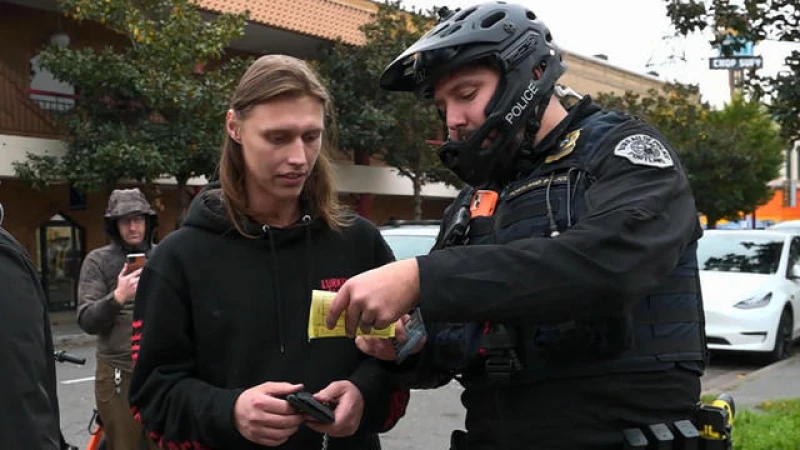Portland's Approach to Fentanyl Use Sparks Debate
The streets of Portland, Oregon, are littered with foil, syringes, and used Narcan canisters, reflecting a stark reality where open fentanyl use is a common sight.
After grappling with soaring fentanyl overdose rates, Oregon pioneered a 2020 law called Measure 110 that partly decriminalized the possession of certain drugs. Oregon's Drug Addiction Treatment and Recovery Act aimed to prioritize treatment over criminalization.
However, this approach has been met with criticism from members of law enforcement who argue that the lack of serious legal consequences doesn't incentivize treatment for addicts — especially given fentanyl's highly addictive nature.
"My full-time job is fentanyl and basically all roads lead to fentanyl in downtown Portland," said Portland Police Officer David Baer.
While on patrol recently, Baer, who leads Portland Police's bike squad, issued a $100 citation to 23-year-old Milo McPherson for publicly smoking fentanyl instead of arresting McPherson. That offers McPherson a chance for treatment and a fine waiver if he contacts specific drug rehabilitation services. But calling the hotline is voluntary, frustrating Portland law enforcement.
Since the implementation of the measure, there have been over 6,000 citations issued, with a non-compliance rate of 64%, as reported by the Oregon Judicial Department. However, the lack of adherence to the measure has prompted a coalition of police chiefs, donors, and district attorneys, including Washington County District Attorney Kevin Barton, to call for a return to criminalizing drug use while integrating diversion programs within the judicial system.
Barton stated, "The majority of people who receive these tickets simply throw them away. There is no easy solution. We need to establish rewards and consequences to encourage participation in treatment programs."
Advocates of the measure claim that over 15,000 individuals across more than 200 locations in the state have received treatment, resulting in a 68% decrease in arrests and incarcerations for drug use or possession, according to the Oregon Health Authority.
Christina Anderson, a program director at Volunteers of America Oregon, emphasized that addiction should be treated as a medical issue rather than a moral one and called for appropriate measures to address it.
"If Measure 110 is repealed and substance use is criminalized again, individuals will be incarcerated without receiving the necessary help," Anderson explained.
The implementation of Measure 110 has resulted in the expansion of housing, treatment, and rehabilitation programs. Organizations like Volunteers of America Oregon have received significant funding to extend their outreach and addiction services.
Ebony Brawley, who underwent treatment, credited 4D Recovery's peer mentorship for her recovery.
"Because of measure 110, I was able to change my story and break those chains, you know, and provide a life for myself and for my daughter that she probably wouldn't have had," said a person named Brawley.
Meanwhile, back on the streets of Oregon, a person named McPherson says he is ready for treatment after "Letting my addiction make the worst out of me."







